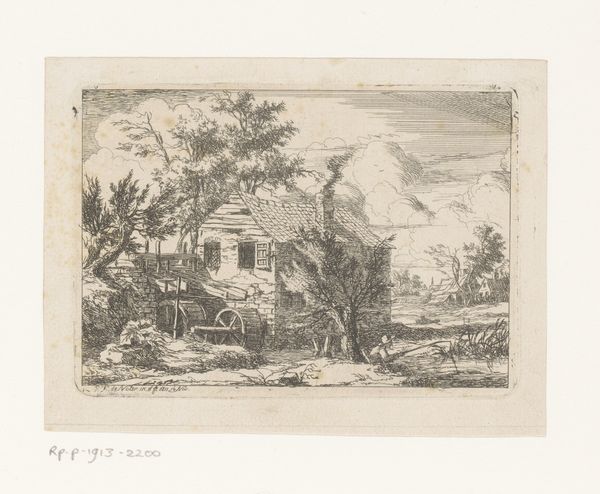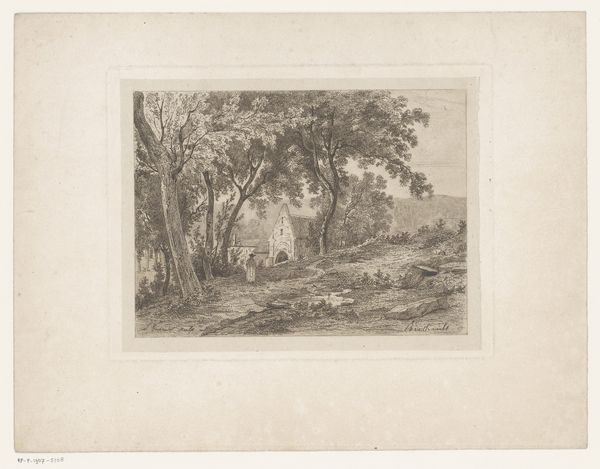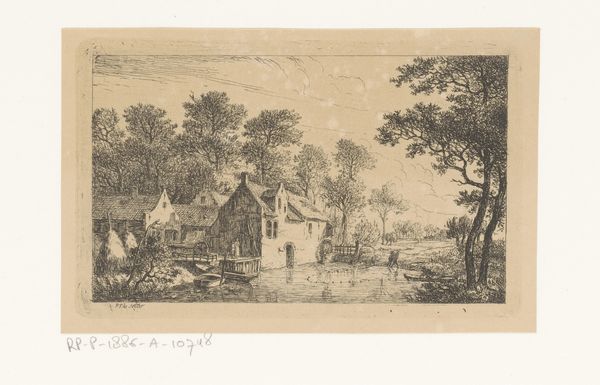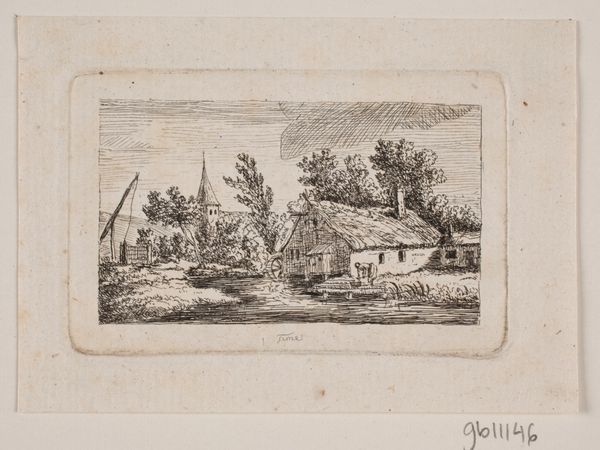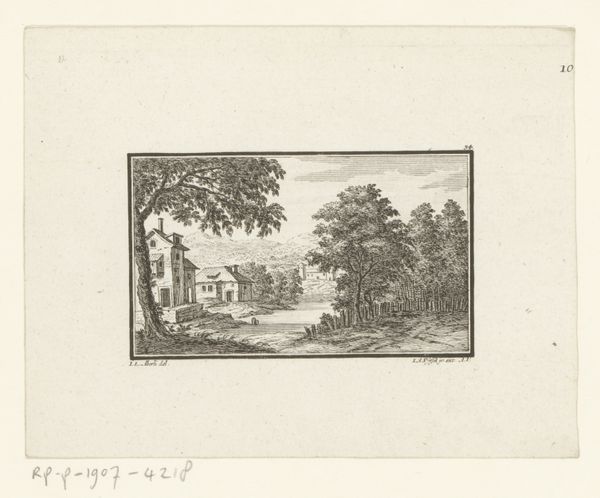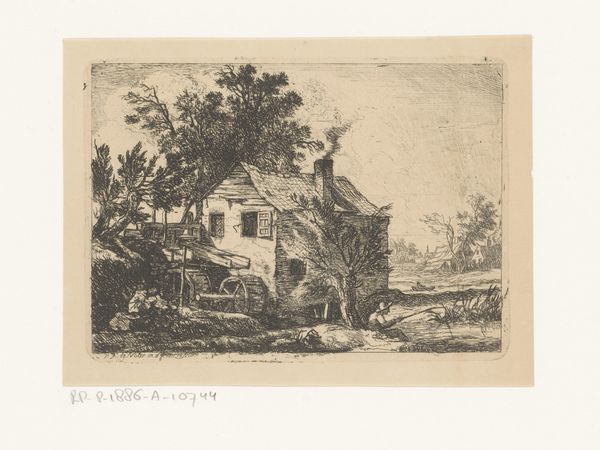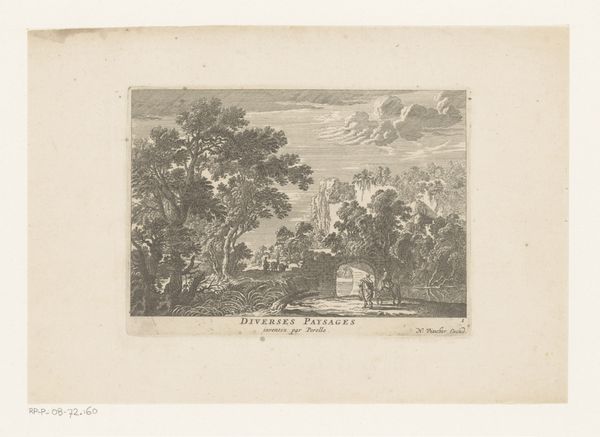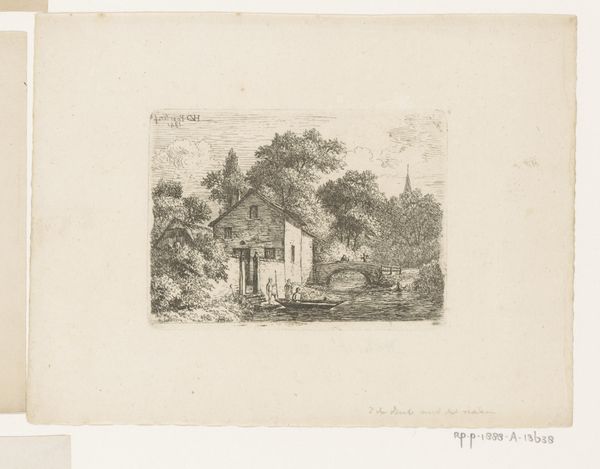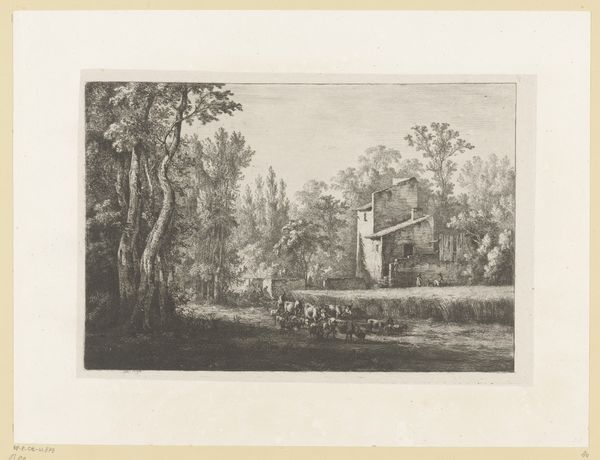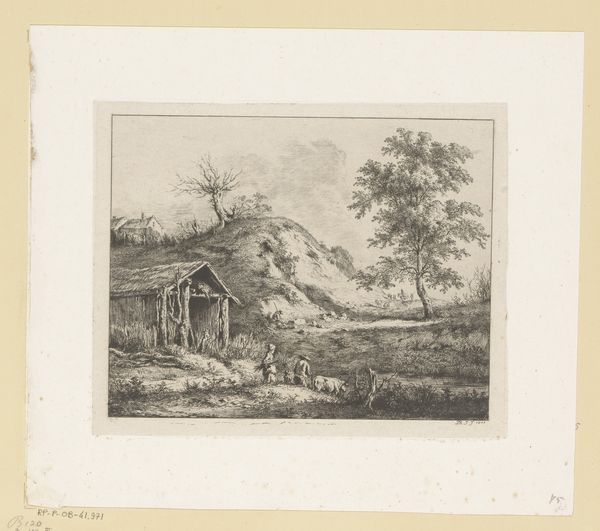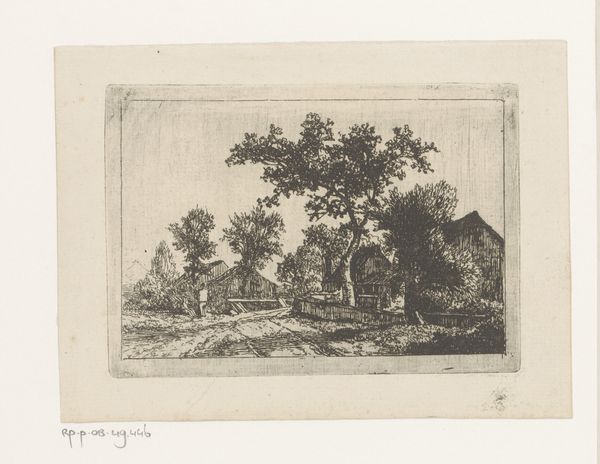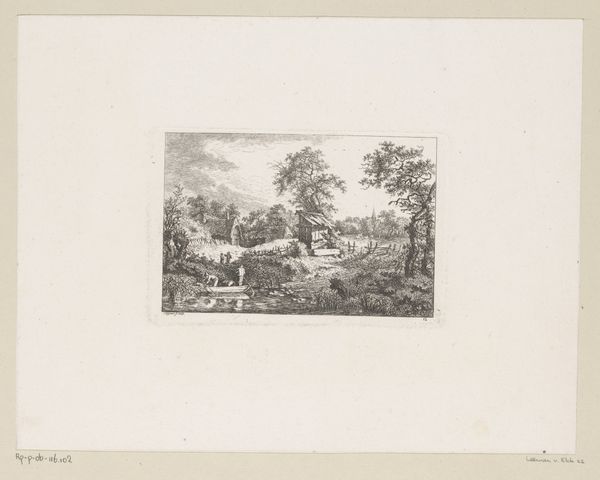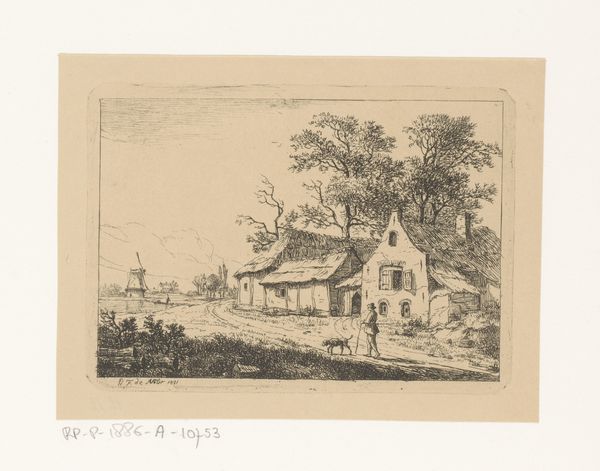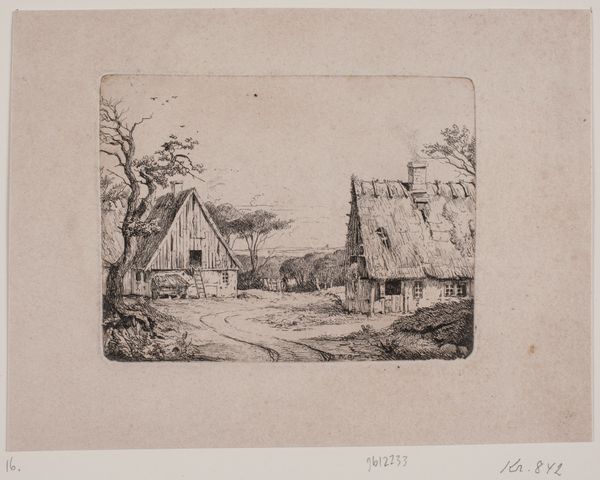
drawing, print, etching
#
drawing
# print
#
etching
#
landscape
#
romanticism
Dimensions: height 104 mm, width 145 mm
Copyright: Rijks Museum: Open Domain
Editor: Here we have "Watermolen in een landschap," or "Watermill in a Landscape," an etching made in 1811 by Pierre François De Noter, housed at the Rijksmuseum. It's so detailed, but the texture created by the etching process also gives it a kind of dreamy, soft feel. What stands out to you about this piece? Curator: The distribution of tonal values is quite striking. Note how De Noter uses the density of the etched lines to modulate the light. See how the areas around the mill are darker, achieved with closer hatching and cross-hatching, while the sky is almost entirely devoid of lines. The foreground exhibits a similar treatment, anchoring the composition. Editor: Yes, the darker foreground does bring the mill into focus. The composition feels almost split in half between dark and light...was that common at the time? Curator: Less about historical trends, and more about internal organization, in this case. Consider the function of line itself, both as contour and shading. Ask yourself, does the manipulation of light through these technical means draw your attention to specific spatial relationships or suggest something beyond the depicted subject? Editor: So it’s less about representing something real, and more about how the light and shadow create a mood? Curator: Precisely. The technical application produces the visual impression. We discern spatial relationships, forms, light, shadow—the feeling arises from these elements, not solely the depicted scene. Editor: I see… so the texture is not just detail; it actively creates the artistic effect. I will definitely be paying more attention to the etching techniques from now on. Curator: Indeed, every mark contributes to the overall formal structure.
Comments
No comments
Be the first to comment and join the conversation on the ultimate creative platform.
